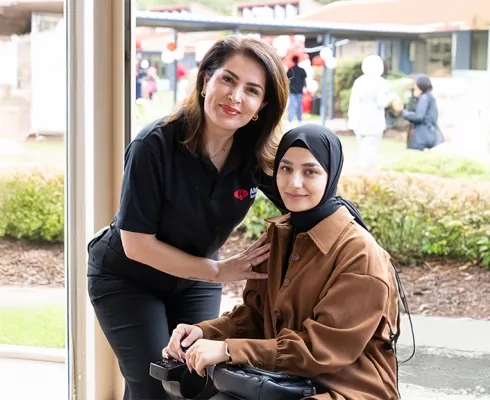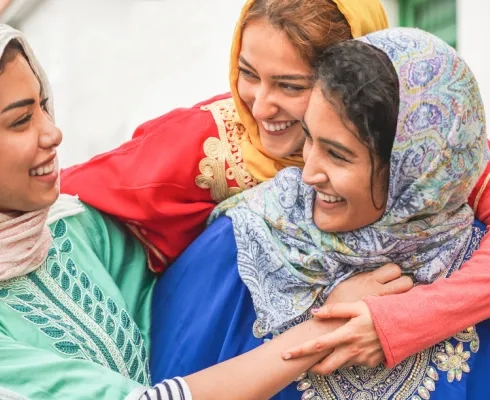Reflect (September 2020 – September 2021)
AMES Australia acknowledges the traditional custodians of the lands and waters where we live and work. We pay respect to their elders past, present and emerging.
Download the Reconciliation Action Plan 2020-2021
PDF 1.2 MBMessage from the Chief Executive Officer
I am pleased to present the Reconciliation Action Plan 2020-2021 for AMES Australia (AMES).
As this is AMES’ first Reflect RAP, this plan will provide a map to the start of our journey to support reconciliation between Aboriginal and Torres Strait Islander Peoples and the wider community. It demonstrates our commitment to learn new ways of strengthening relationships with Aboriginal and Torres Strait Islander Peoples and our client communities.
Our vision for reconciliation is to provide all Australians access and support to actively participate in AMES’ services. In line with this, our aim is to contribute to reconciliation through the participation of Aboriginal and Torres Strait Islander Peoples in programs and workplaces which are truly inclusive.
Through education and personal development opportunities, AMES staff will be equipped with cultural competency, knowledge and compassion to provide culturally safe and appropriate settlement, education and employment services.
By developing organisational capacity to support and build meaningful relationships with the First Peoples of this land, we will improve our understanding of their issues and aspirations to be able to facilitate trust in the services we offer, which are ultimately aimed at promoting economic and social participation for all in a diverse society.
I look forward to working with our Executive Team and our Senior Leadership Management Group to actively monitor and evaluate the RAP throughout its implementation at AMES.
Catherine Scarth
Chief Executive Officer
Indigenous cultural protocols
The development of respectful relationships between AMES Australia and Indigenous Australians is an important step towards reconciliation. Respect can be manifested either by an Acknowledgement of or a Welcome to Country, which are described briefly below.
Acknowledgement of Country
This is a symbolic reconciliation gesture that recognises and pays respect to Traditional Custodians of the land on which the statement is made. An Acknowledgement of Country is a statement of recognition that is made by someone who is not a Traditional Custodian or Owner of the country or land on which the statement is being made. It can be offered as a way of showing awareness of, and respect for, the Aboriginal Traditional Owners of the land where a meeting or event is held.
As a mark of respect, an Acknowledge of Country is made at formal events and occasions, and it is usually the first speaker at the event who should give the Acknowledgement of Country. AMES example is provided below:
“On behalf of AMES Australia we would like to acknowledge the Traditional Owners and custodians of this land on which we are meeting today. We pay respects to their Elders past, present and emerging and recognise their continuing connection to country, land, waters, sky, and cultures past and future.
We also acknowledge Indigenous and Torres Strait Islanders visiting from other parts of Australia and respect their cultures that are in attendance today."
A Welcome to Country or Traditional Welcome is a statement of welcome that can only be made by Traditional Owners or Custodian of the land or Country on which the statement is being made. This can take many forms including singing, dancing, smoking ceremonies or a speech in traditional language or English. This allows Traditional Owners/Custodians to welcome visitors to their Country and give their blessing to the event.





